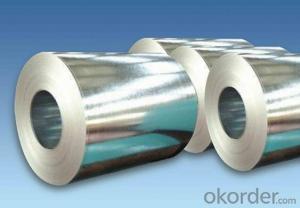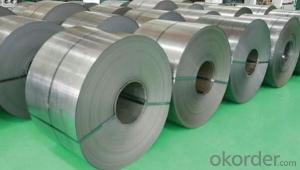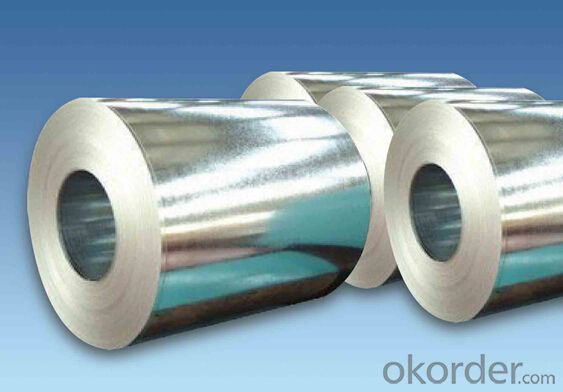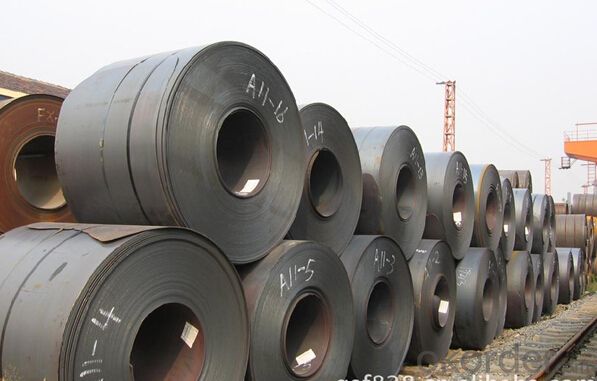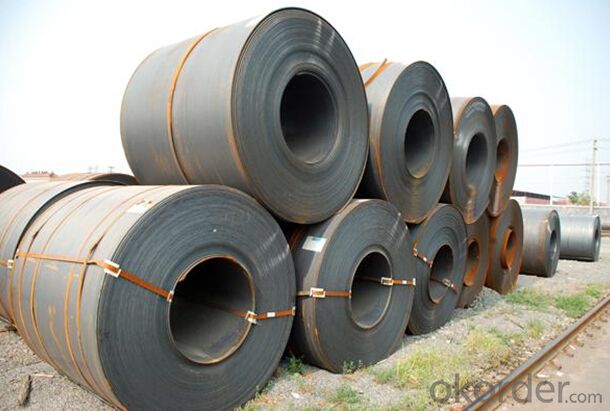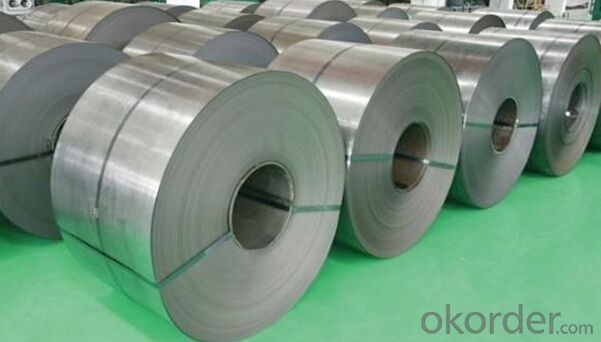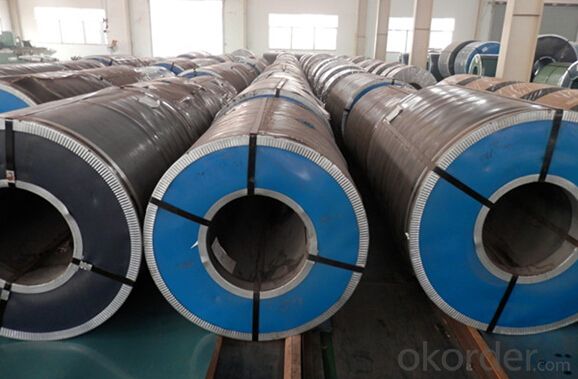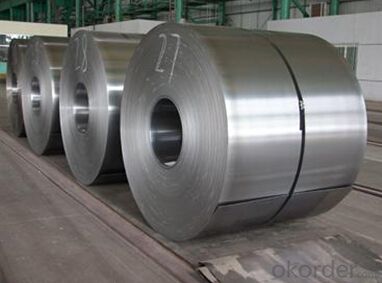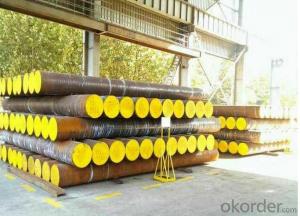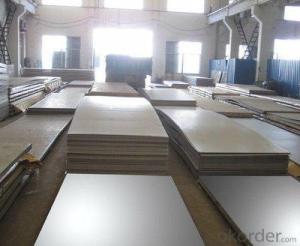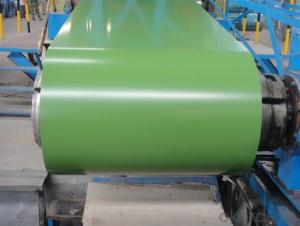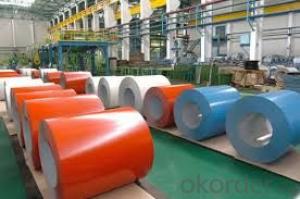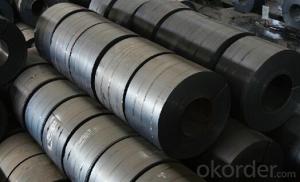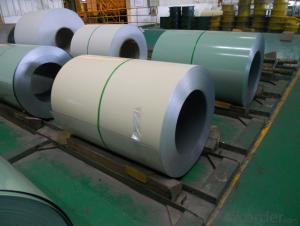PPGI_PPGL_GI_GL _CR_ HR Steel Coil with Lower Price
- Loading Port:
- Tianjin
- Payment Terms:
- TT OR LC
- Min Order Qty:
- 50 m.t.
- Supply Capability:
- 10000 m.t./month
OKorder Service Pledge
OKorder Financial Service
You Might Also Like
Specification
Hot Sales PPGI PPGL GI GL CR HR Steel Coil with Lower Price
Quick Details
Name | Hot Rolled Steel Coil |
Standard | GB/ASTM/SAE/AISI/DIN/JIS/EN/BS |
Surface Treatment: | Black/Peeling/Polished/Machined |
Delivery Condition: | Hot Rolled or Forged/Peeled or Black Surface |
Test | SGS/UT 100% Elements Testing |
Certificate: | ISO/Mill Certificate |
Service: | 24 hours online service / |
more than 20 years trading and manufacture | |
Quality Assurance: | the third party inspection, such as SGS, BV, TUV…etc. is acceptable |
Packaging Details: | Seaworthy Packaging or as per customer's packing instruction |
Specification
1.PPGL Specification | Thickness :0.2-5.0mm width:600-1500mm |
2.Brand: | Zinc galv, HBIS-Tangsteel, shousteel, Ansteel etc. |
3.production | coated |
4.standard | ASTM Gr.B JIS DIN |
5.steel grade | DX51D+AZ/GX51D+Z, SGCC |
6.Unite length | Coil or 5-12m as customer’s requirements per plate |
7.quality | top |
8:place of origin | china |
9. Outside coating: | Coated, galvanized, galvalume or as per required by customer's |
10. Third party inspection | SGS/BV |
Company Information
CNBM International Corporation is the most import and export platform of CNBM group(China National Building Material Group Corporation) ,which is a state-owned enterprise, ranked in 270th of Fortune Global 500 in 2015.
With its advantages, CNBM International are mainly concentrate on Cement, Glass, Iron and Steel, Ceramics industries and devotes herself for supplying high quality series of refractories as well as technical consultancies and logistics solution.
After-sale service | l CNBM provides the services and support you need for every step of our cooperation. We’re the business partners you can trust; you can relax and get on with doing business. |
l For any problem, please kindly contact us at any your convenient time, we’ll reply you in our first priority within 24 hours | |
Advantages | Industry experience over 20 years. |
Shipment of goods -More than 70 countries worldwide. | |
The most convenient transport and prompt delivery. | |
Competitive price with best service. | |
High technical production line with top quality products. | |
High reputation based on best quality products. |
Product Show
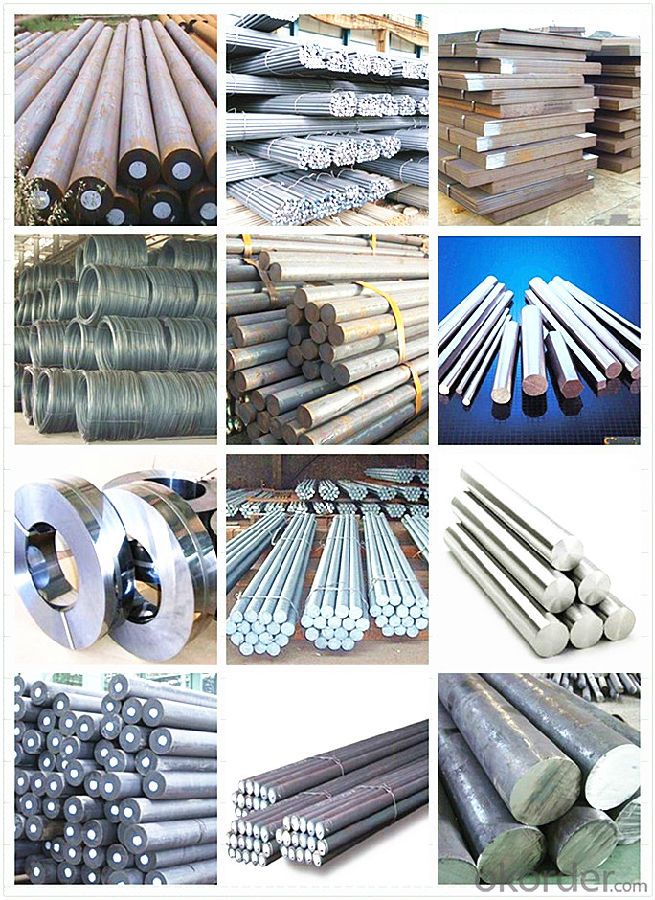
FAQ
Are you a trading company or manufacturer? | Manufacturer |
What’s the MOQ? | 3 metric ton |
What’s your delivery time? | 15-35 days after downpayment received |
Do you Accept OEM service? | Yes |
what’s your delivery terms? | FOB/CFR/CIF |
What's the Payment Terms? | 30% as deposit,70% before shipment by T/T |
Western Union acceptable for small amount. | |
L/C acceptable for large amount. | |
Scrow ,Paybal,Alipay are also ok | |
Why choose us? | Chose happens because of quality, then price, We can give you both. |
Additionally, we can also offer professional products inquiry, products knowledge train (for agents), smooth goods delivery, excellent customer solution proposals. | |
What's your available port of Shipment? | Main Port, China |
What’s your featured services? | Our service formula: good quality+ good price+ good service=customer's trust |
Where are your Market? | Covering more than 160 countries in the world |
- Q: How is special steel tested for quality and durability?
- Special steel is tested for quality and durability through a series of rigorous processes and tests. These tests are designed to ensure that the steel meets the required standards and can withstand various conditions and applications. One common method used to test special steel is the tensile strength test. This test measures the maximum amount of stress that the steel can withstand before breaking or deforming. It is conducted by applying a pulling force on a sample of the steel until it reaches its breaking point. The results of this test determine the steel's ability to resist external forces and its overall strength. Another important test is the hardness test. The hardness of the steel is a critical factor in determining its durability. This test involves measuring the resistance of the steel to indentation or scratching. The steel sample is pressed against a hard surface, and the depth of the indentation is measured. The harder the steel, the more resistant it is to wear and deformation. In addition to these mechanical tests, special steel is also subjected to various chemical and metallurgical tests. These tests help determine the chemical composition and microstructure of the steel, which are crucial factors in ensuring its quality and durability. For example, spectroscopic analysis is used to determine the exact chemical composition of the steel, while metallography allows for the examination of the steel's microstructure, including the presence of any impurities or defects. Furthermore, various non-destructive testing methods are employed to assess the steel's internal structure without causing any damage to the material. These methods include ultrasonic testing, magnetic particle inspection, and radiographic testing. Ultrasonic testing uses high-frequency sound waves to detect any internal flaws or defects in the steel, while magnetic particle inspection relies on the application of magnetic fields to identify surface cracks or discontinuities. Radiographic testing, on the other hand, uses X-rays or gamma rays to examine the internal structure and detect any defects that may compromise the steel's quality and durability. Overall, the testing of special steel for quality and durability is a comprehensive process that combines mechanical, chemical, metallurgical, and non-destructive testing methods. Through these tests, manufacturers can ensure that the steel meets the required standards and can perform reliably in various applications, thereby guaranteeing its quality and durability.
- Q: What are the different types of high-speed steel?
- The different types of high-speed steel include M1, M2, M3, M4, M35, M42, and T1.
- Q: What are the different surface protection methods used for special steel?
- The different surface protection methods used for special steel include galvanizing, painting, powder coating, and electroplating. These methods are employed to prevent corrosion, enhance durability, and improve appearance. Galvanizing involves applying a layer of zinc to the steel surface, creating a protective barrier. Painting involves applying a coat of paint, acting as a protective layer against environmental factors. Powder coating is a process where a dry powder is applied to the steel surface and then heated to form a durable and protective layer. Electroplating involves depositing a thin layer of metal onto the steel surface through an electrolytic process, providing corrosion resistance and aesthetic appeal.
- Q: How does special steel perform in cryogenic environments?
- Special steel performs exceptionally well in cryogenic environments. Cryogenic temperatures refer to extremely low temperatures below -150°C (-238°F), and special steel is specifically designed to withstand and excel in such conditions. One of the key properties of special steel is its ability to maintain its strength and toughness even at low temperatures. Unlike other materials that become brittle and prone to fractures in cryogenic environments, special steel retains its mechanical properties, ensuring structural integrity and reliability. This characteristic is crucial in applications where safety is paramount, such as in the aerospace and nuclear industries. Moreover, special steel exhibits excellent resistance to corrosion and oxidation, even at cryogenic temperatures. This resistance is essential as cryogenic environments often involve the presence of gases, liquids, or chemicals that can accelerate corrosion. Special steel's resistance to corrosion ensures its longevity and minimizes the risk of material degradation, thereby enhancing the overall performance and lifespan of equipment or structures. In addition to its mechanical and corrosion-resistant properties, special steel also possesses good thermal conductivity. This property allows for efficient heat transfer, which is particularly important in cryogenic environments where temperature control and management are critical. The ability of special steel to efficiently conduct heat ensures that equipment and structures remain at the desired low temperatures without any significant thermal variations. Furthermore, special steel's suitability for cryogenic environments is evident in its wide range of applications. It is commonly used in cryogenic storage tanks for liquefied gases, such as liquid oxygen, nitrogen, and argon. Special steel is also employed in the construction of cryogenic pipelines, valves, and other components, where its exceptional performance ensures the safe transport and containment of cryogenic fluids. In conclusion, special steel performs exceptionally well in cryogenic environments due to its retained strength and toughness, resistance to corrosion, good thermal conductivity, and wide range of applications. Its ability to withstand extreme cold temperatures makes it a reliable and preferred choice for various industries requiring dependable performance in cryogenic conditions.
- Q: How are tungsten alloys used in the defense industry?
- Tungsten alloys are commonly used in the defense industry due to their exceptional properties such as high density, strength, and resistance to heat and corrosion. These alloys are used in various applications including armor piercing ammunition, kinetic energy penetrators, and armor plating for military vehicles and aircraft. Their ability to withstand extreme conditions and penetrate hardened targets make tungsten alloys vital for enhancing the effectiveness and protection capabilities of defense systems.
- Q: How does special steel perform in extreme pressure conditions?
- Special steel offers exceptional performance in conditions of extreme pressure, thanks to its unique composition and manufacturing process. It possesses high strength, durability, and resistance to deformation, which make it ideal for applications involving extreme pressures. Under extreme pressure, special steel maintains its structural integrity without significant deformations. This is possible due to its impressive tensile strength, allowing it to withstand tremendous forces without breaking or bending. Furthermore, the hardness and toughness of special steel enable it to resist wear and damage caused by intense pressure. In addition, special steel exhibits excellent heat resistance, which is vital in extreme pressure situations where elevated temperatures are common. Its ability to withstand high temperatures without compromising its mechanical properties ensures its dependability and effectiveness even in the most demanding circumstances. Moreover, the corrosion resistance properties of special steel are outstanding, making it suitable for use in extreme pressure environments where exposure to corrosive substances is a concern. Its resistance to oxidation and other chemical reactions prevents deterioration or weakening, guaranteeing long-term performance and reliability. Overall, special steel excels in extreme pressure conditions due to its high strength, durability, resistance to deformation, heat resistance, and corrosion resistance. These characteristics make it a reliable and efficient choice for various industries and applications that operate in extreme pressure environments, including oil and gas exploration, aerospace, automotive, and heavy machinery manufacturing.
- Q: What are the different heat treatment processes used in special steel?
- Some of the different heat treatment processes used in special steel include annealing, tempering, hardening, and quenching. Each of these processes is designed to alter the properties of the steel, such as its hardness, strength, and ductility, to meet specific requirements for different applications. Annealing involves heating the steel to a specific temperature and then slowly cooling it, which helps to relieve internal stresses and improve its machinability. Tempering involves reheating the steel after hardening to a lower temperature, which reduces its brittleness and increases its toughness. Hardening involves heating the steel to a high temperature and then rapidly cooling it, typically in water or oil, to achieve maximum hardness. Quenching is the rapid cooling process used to achieve hardening. These heat treatment processes can significantly enhance the performance and durability of special steel in various industries.
- Q: What are the different methods for quenching special steel?
- Achieving the desired mechanical properties and improving the hardness and strength of special steel requires a critical step in the heat treatment process known as quenching. There are several methods available, each with their own advantages and considerations. One commonly used method is oil quenching, where the steel component is submerged in oil to act as a cooling medium. This provides a moderate cooling rate, allowing for controlled and uniform hardening. It is suitable for a wide range of steel grades and helps prevent cracking or distortion. Water quenching, on the other hand, is a faster cooling method compared to oil quenching. It extracts heat rapidly, resulting in higher hardness and strength. However, the high cooling rate can increase the risk of cracking or distortion, especially with thicker sections. Water quenching is commonly used for low-alloy steels and some high-alloy steels. Polymer quenching involves using a specialized polymer solution as the cooling medium. This method offers a controlled cooling rate, striking a balance between the slower oil quenching and faster water quenching. It is particularly suitable for steels with complex shapes or critical dimensions, as it reduces the risk of distortion and cracking. Air quenching, on the other hand, is a slower cooling method that allows the steel component to cool in ambient air. It is typically used for steels with lower hardenability, providing a more gradual cooling rate. While it helps reduce the risk of distortion and cracking, it may result in lower hardness and strength compared to other quenching methods. Finally, salt bath quenching involves immersing the steel component in a molten salt bath as the cooling medium. This method provides a controlled and uniform cooling rate, minimizing the risk of distortion and cracking. It is particularly suitable for complex-shaped or delicate parts, as it reduces thermal stress during cooling. It is important to consider various factors, such as steel grade, desired hardness, component size and shape, and required mechanical properties when choosing a quenching method. Proper selection and implementation of the method are crucial to achieving the desired material characteristics and ensuring the overall quality of the special steel product.
- Q: How is special steel used in the production of turbine shafts?
- Special steel is used in the production of turbine shafts due to its high strength, durability, and resistance to corrosion and fatigue. The unique properties of special steel make it ideal for withstanding the extreme conditions and loads experienced by turbine shafts during operation, ensuring efficient and reliable power generation.
- Q: Can special steel be used in the manufacturing of precision instruments?
- Indeed, precision instruments can benefit from the utilization of special steel. Special steel encompasses a range of steel types that have been purposefully crafted and processed to possess specific attributes, such as heightened strength, hardness, resistance to corrosion, and thermal stability. These unique qualities render special steel highly suitable for applications necessitating precision and accuracy, such as precision instrument manufacturing. Precision instruments, such as surgical tools, measuring devices, optical instruments, and scientific equipment, necessitate materials capable of retaining dimensional stability and enduring extreme conditions. Special steels, such as stainless steel, tool steel, and high-speed steel, provide exceptional mechanical properties, including remarkable tensile strength, resistance to wear, and dimensional stability. Consequently, these kinds of steel are well-suited for the production of precision instruments. Moreover, special steel can be engineered to possess specific characteristics, such as low magnetic permeability or excellent resistance to temperature fluctuations. These attributes prove particularly vital in precision instruments, as magnetic interference or temperature variations have the potential to impact their performance. To summarize, special steel can indeed be employed in the manufacturing of precision instruments due to its exceptional mechanical properties, dimensional stability, and ability to withstand harsh conditions. Its versatility enables the production of precision instruments of superior quality, fulfilling the stringent requirements of various industries, including the medical, scientific, and engineering sectors.
Send your message to us
PPGI_PPGL_GI_GL _CR_ HR Steel Coil with Lower Price
- Loading Port:
- Tianjin
- Payment Terms:
- TT OR LC
- Min Order Qty:
- 50 m.t.
- Supply Capability:
- 10000 m.t./month
OKorder Service Pledge
OKorder Financial Service
Similar products
Hot products
Hot Searches
Related keywords
